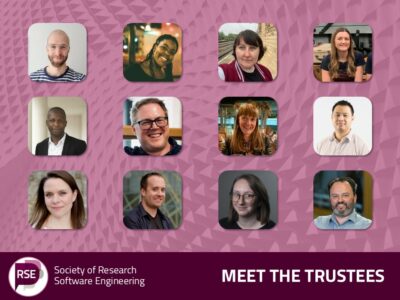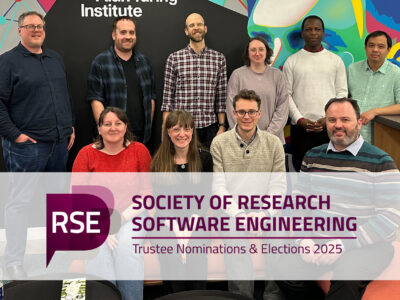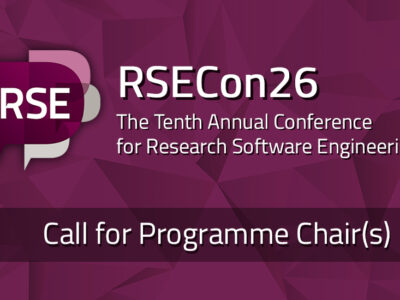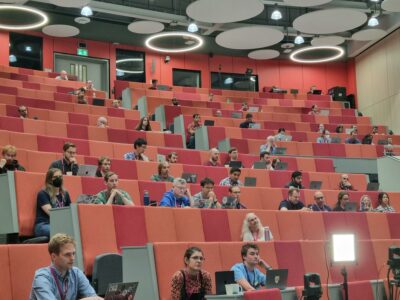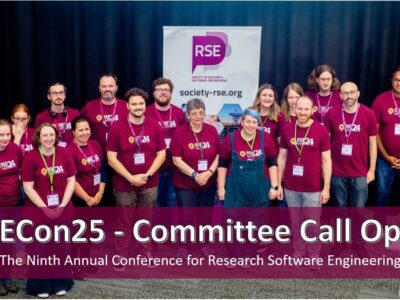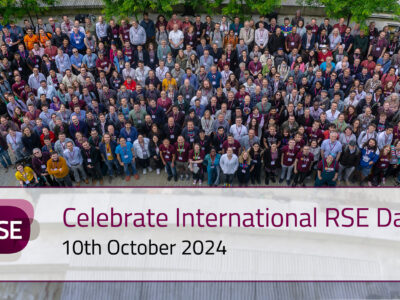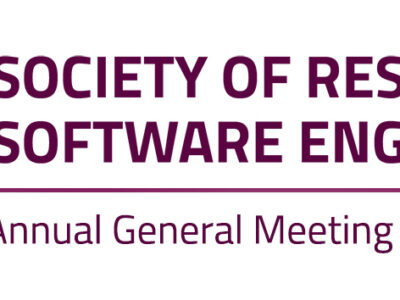Getting to know your 2021 RSE Fellows — Thomas Dowrick
This week we’re introducing Thomas Dowrick from UCL! Learn more about him here.
Improving Research Translation in Image Guided Surgery
The medical devices field has historically focused on hardware innovations, but in an increasingly data-driven field, innovation has shifted towards technologies such as AI and augmented reality. As software becomes increasingly central to modern healthcare, it is essential that the importance of RSE in the clinical lifecycle is recognised; and that software developed for medical devices is of the highest quality, to ensure the successful translation of treatments from the laboratory to the clinic.
The full benefit of RSE work has not yet been felt in the medical devices field, in the same way that it has in other areas, such as physical sciences, and this is an area which comes with its own set of unique challenges.
Medical Device Software
As a term, medical devices broadly covers any physical devices (pacemakers, syringes, CT scanners etc) or software which can be used for treatment or diagnosis. Given that the primary route to impact/profitability for a medical device is for it to be used in patients, any device must comply with the relevant regulations surrounding medical devices (Medicines and Medical Devices Act 2021 in the UK, EU Medical Device Regulations in Europe, FDA in America). While the regulations do not specify how software should be implemented, they do set requirements on what is expected in terms of software specification, documentation, verification etc., and a failure to meet these requirements will result in a product not making it through to clinical deployment.
Unfortunately, research teams do not always write software which adheres to the best principles of software engineering, and for medical devices, this often means that potentially useful technologies never make it out of the research lab into clinical deployment, or that significant additional time/effort/cost are required at a later stage to re-write software that is of a suitable standard.
Perhaps more important than simply complying with regulations, as new software technologies, particularly AI, become more mainstream, there is a duty to ensure that patients and the general public can have confidence that the software which is going to affect their medical care has been designed with the upmost levels of responsibility and integrity.
Image Guided Surgery
The particular area of medical technology I will be focusing on during my fellowship is Image Guided Surgery (IGS), hosted by UCL’s Department of Medical Physics, working with the Wellcome/EPSRC Centre For Surgical and Interventional Sciences (WEISS). There are ~5 million surgical procedures annually in the UK, and the majority are carried out as open surgery. While keyhole surgery offers faster recovery and fewer complications for the patient; a lack of haptic/visual feedback, limited fields of view etc., mean that in many cases it is not a practical approach for the surgeon. The key aim of research in IGS is to translate technologies to the clinic, providing targeted, less invasive and more successful treatment for patients. In turn, this can improve recovery times; reduce cost and time pressures on the NHS and ease the workload of clinical teams.
My fellowship is divided into three broad areas of work:
Intraoperative Simulation Software
A majority of researchers in IGS are involved with machine learning in some form (registration, segmentation, stereo reconstruction, classification etc). However, the lack of application specific training data is a major blocker for development. In addition, the time-consuming process of manually labelling data is especially challenging for medical data, as labelling complex intraoperative scenes or radiological data typically requires the intervention of a trained clinician.
The wider computer vision community has benefited from large open sourced datasets, including both real (e.g. ImageNet, KITTI) and simulated (e.g. Scene Flow, Virtual KITTI) data, and large synthetic datasets can pose the same benefits to the IGS community. Synthetic data has the additional advantage of being able to generate more accurate and complex labels, without the time/cost overheads of manual labelling.
An open-source intraoperative simulation tool, will provide researchers with the data they need for their specific application. Users will be able to position a camera within a 3D torso populated by organ models, specifying the type of labelled data they would like to generate, and the parameters which they wish to vary, from which the software which can generate tens of thousands (or more) of outputs.
Cloud Services for the Operating Theatre (OT)
While algorithm development is crucial for IGS, it is equally important to be able to easily and reproducibly deploy new methods in OT. In a laboratory setting, a workstation may be used for testing, but medical grade PCs found within the OT are relatively underpowered and typically cannot provide the computational resources needed, particularly for near real time performance. Even if it is possible to place a workstation within the OT, that the cost of providing this throughout a hospital, and across multiple sites within an NHS trust, is prohibitive, especially given that resource utilisation will be low (OTs are not in use 24/7). It is also difficult to rapidly scale up or deploy new resources using such an approach.
A cloud based service can address these issues, providing consistent software defined infrastructure for the deployment of new algorithms and allow for resources to be provisioned as needed, providing ease of access, security and/or speed of use.
Clinical Translation
As software becomes increasingly important to the deployment of new treatments, it is essential that the importance of RSEs is recognised, providing expertise at all stages of the software lifecycle, from initial development through to clinical deployment. I have already identified clinical collaborations at UCL, KCL and Imperial and will be building further collaborations across the UK.
Training/Workshops
As part of my fellowship, I will also be arranging a series of workshops around Software Engineering in Image Guided Surgery/Medical Devices, as well as training on software development as it relates to current medical device regulations, and will circulate information through the SSI and usual UK RSE channels.

